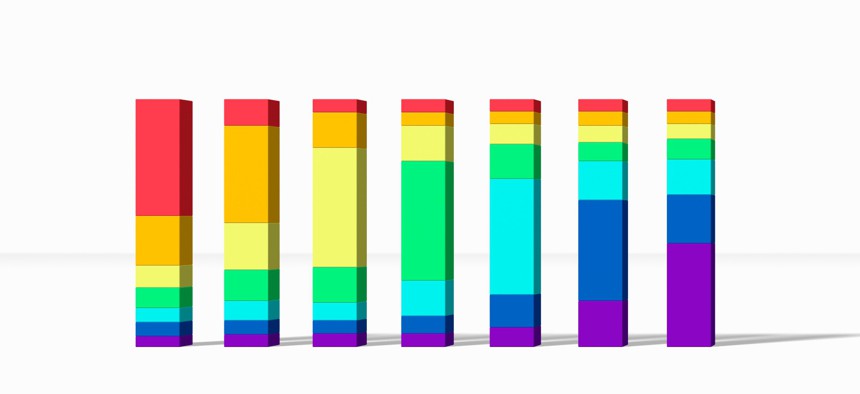White House seeks input on federal evidence agenda for LGBTQI+ equity

Hiroshi Watanabe/Getty Images
The White House Office of Science and Technology Policy wants to know about possible blind spots preventing agencies from understanding what disparities are impacting the LGBTQI+ community nationwide, from accessing healthcare to housing.
The White House wants to learn more about disparities affecting the LGBTQI+ community while aiming to address longstanding gaps in federal data collection around sexual orientation and gender identity through voluntary, self-disclosed information.
The White House Office of Science and Technology Policy released a request for information (RFI) this month as a National Science and Technology Council subcommittee on equitable data works to develop a federal evidence agenda on LGBTQI+ equity. The goal of the agenda is to “improve the federal government’s ability to make data-informed policy decisions that advance equity for the LGBTQI+ community,” according to the RFI.
President Joe Biden signed an executive order titled "Advancing Equality for Lesbian, Gay, Bisexual, Transgender, Queer, and Intersex Individuals" earlier this summer, which directed the interagency working group on equitable data to establish the sexual orientation, gender identity, and variations in sex characteristics (SOGI) data subcommittee. The order also expanded efforts to increase the collection of self-disclosed gender identity and sexual orientation data across agencies in alignment with confiendiality laws and civil rigths.
As it creates the new governmentwide directives, OSTP said it wants to better understand whether there are blindspots preventing current federal statistics and data collection methods from understanding certain disparities faced by LGBTQI+ people, and what community-based or non-federal alternatives may be available to help inform the development of the equity agenda.
Studies have consistently shown LGBTQI+ individuals disproportionately face challenges accessing healthcare and housing. The policy is pushing agencies to collect information on those individuals and populations that are crucial for budgetary allocations and decision-making purposes.
The House Oversight Committee also recently approved the LGBTQI+ Data Inclusion Act, which would require agencies to implement voluntary data collection methods on sexual orientation, gender identity and sex characteristics variations into their public surveys. The bill, which includes privacy exceptions and confidentiality waivers, would also address outdated terminology in federal policy surrounding the LGBTQI+ community.
OSTP is also seeking input about SOGI data collection methods to avoid due to privacy risks or the potential to create new barriers to participation in federal programs, and how best to communicate with the public and encourage responses to questions about sexual oreitnation and gender identity.
The RFI also features a section on privacy, security and civil rights inquiring about the unique risks around collecting and retaining SOGI data.
Responses are due October 3, 2022.



